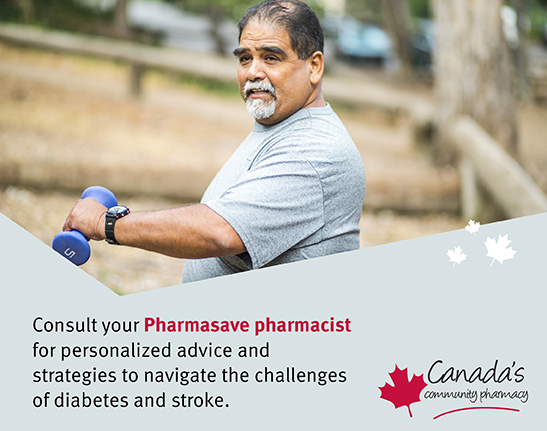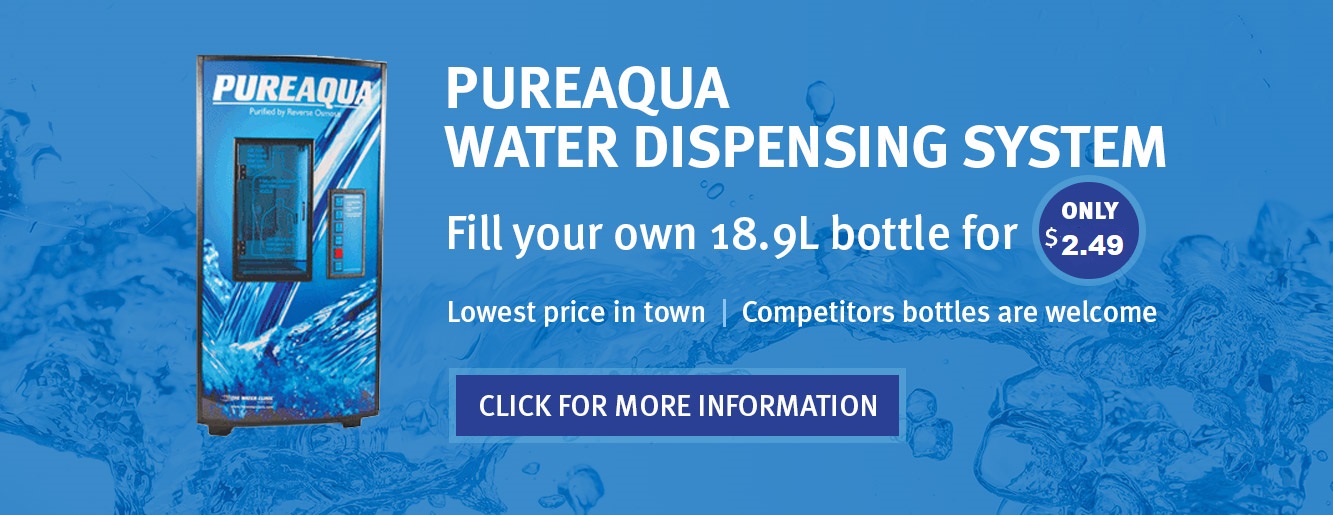
June – Men’s Health and Headaches
Under pressure: facing up to stress
You and Jack Bauer have something in common.
Okay, admittedly, you’ll probably never be called upon to stop a nuclear bomb, rescue kidnapped family members, infiltrate a drug cartel, or fake your own death, all of which the hero of 24 had to do in the show’s 9 seasons. Your typical day may be less dramatic, but we bet you still know what it’s like to face overwhelming stress. The question is, how are you handling it? Let’s look at stress, what it does to your body, and how to stop it from taking over your life.
Get to know the enemy
We tend to think of stress as a single entity, but there are actually three kinds: acute stress, episodic acute stress, and chronic stress.
Acute stress is the most common type. It’s caused by recent pressures and pressures we’re anticipating in the near future, but it only lasts for a short time. Sometimes we enjoy stress, and many of us seek it out (for example, by watching scary movies or participating in extreme sports). Sometimes it’s caused by a positive life change, such as a job promotion or a new baby. Other times, it’s foisted upon us in the form of deadlines, rush hour traffic, or a lost wallet.
In stressful situations, our bodies react with a “fight or flight” response. The autonomic nervous system, which regulates bodily functions including the heartbeat, digestion, breathing, and perspiration, floods your system with stress hormones (epinephrine, norepinephrine, and cortisol). As a result, your heart rate and blood pressure rise and you feel a rush of energy. You may also have a heightened sense of awareness, be better focused, and feel less pain, but you may also have a rapid or irregular heartbeat, breathing difficulties, sweaty palms, a rise in blood pressure, cold hands or feet, dizziness, or chest pain.
Small amounts of stress are exciting, but too much can be draining and even harmful. It can lead to emotional distress (anger, anxiety, depression, irritability), gastrointestinal problems (heartburn, diarrhea, constipation), and muscular tension (headaches, back and jaw pain).
Episodic acute stress is acute stress that won’t quit. People in this situation feel perpetually overwhelmed – they face too many demands and never have enough time. They’re often tense, irritable, and anxious, which can lead to conflicts with co-workers, family members, or the next person who cuts them off on the expressway. Physical consequences include high blood pressure, persistent tension headaches, migraines, chest pain, and heart disease.
Has anyone ever said that you worry too much? You could have another form of episodic acute stress. Constant worriers expect the worst in every situation and have a bleak view of the world. They also tend to be over-aroused, tense, anxious, and depressed. Or perhaps you work in an especially stressful field. It’s not healthy to feel like you’re constantly under siege. Speaking to a counselor or psychologist is a step in the right direction.
If you are often in a prolonged state of anxiety, you may have a different mental health issue, such as generalized anxiety disorder (GAD), post-traumatic stress disorder (PTSD), or phobias. An underlying medical problem, such as a thyroid disorder, could also be to blame. Talk to your doctor.
Chronic stress, as the name implies, is a long-term form of stress that slowly eats away at a person’s mind and body. It affects people stuck in difficult situations: a dysfunctional family, an unhappy marriage, a hated job. Chronic stress can also be rooted in traumatic experiences that continue to cause emotional pain.
Chronic stress has been linked to serious health problems, including certain gastrointestinal diseases, advanced aging, depression, stroke, and heart attack. Stress can also increase the frequency and severity of migraine headaches, asthma, and blood sugar level fluctuations (which is very important if you are diabetic). Stress is also thought to decrease the strength of your immune system, putting you at risk of more colds and other infections. Treatment for chronic stress may require medical and behavioral treatment, as well as stress management.
What’s your escape plan?
We all face pressures in our daily lives. Your mission is to manage your stress before it takes a major toll on your mind and body.
Pay attention to physical cues – are you grinding your teeth at night? Are your shoulders always tight? When did those headaches or that heartburn start?
Try to avoid stress in the first place. Learn to say no, as in “No, I can’t take on another project” or “No, I can’t run the bake sale this year.” Talk to your doctor, a counselor, or the employee assistance program at your workplace about issues that are bothering you. Do some soul-searching and identify the changes you’d like to make and the steps you need to get there. Don’t be afraid to call for backup, such as your partner or friends. It can take several weeks or months to change habits, so be patient as you work through any setbacks.
Simple relaxation techniques, such as deep breathing exercises or progressive muscle relaxation (tensing each group of muscles for a few seconds, then releasing), can help you feel less frazzled. Meditation, practiced regularly, can reduce tension and calm the mind. Visualization exercises are also helpful – try envisioning a quiet, peaceful place.
Regular exercise is a terrific stress-buster. Start by taking walks at lunchtime and gradually increase the intensity. To improve your overall well-being, eat healthy and get plenty of sleep. No matter what type of stress you’re under, avoid using alcohol, cigarettes, recreational drugs, or food to deal with negative feelings. If you have tried all of these techniques, but still find yourself tense, speak to your doctor. You can seek advice about any medications that can occasionally help you cope, or even the possibility of seeing a counsellor who could guide you in stress management.
Incorporate time-saving solutions whenever possible. For example, instead of making dinner every night, prepare big batches of your favorite recipes on weekends and freeze the portions. Set aside time for fun activities with people whose company you enjoy. And, of course, for a little bit of good stress, be sure to catch the latest nail-biter episode of your favourite TV drama.
Ask Your Pharmacist
Question: What are some tips and tricks for men to stay healthy and age gracefully?
Answer: Here are 5 tips that are particularly helpful for men to help you age well:
Stay connected with people outside of your family. Social interaction has a positive effect on your general well-being and on how people cope with changes in life. Men who stay connected with their friends live longer, healthier lives. Get together for a poker night, sign up for group guitar lessons, or even join that rec league!
Stay connected with family, too! Grab dinner with the kids or grandkids, or use digital tools like Zoom, Google Meet, Facebook Messenger and Facetime to connect virtually if you can’t get together in person.
Incorporate physical activity regularly. Physical activity can benefit you physically, mentally, and socially. Aim to get at least 150 minutes of moderate-to-vigorous physical activity every week, in intervals of at least 10 minutes.
Please note that falls are a major cause of injuries amongst adults 50+ in Canada. Improve your strength, balance, core strength, and flexibility through activities such as weightlifting, squats with arm movements or modified lunges to help reduce the risk of falls.
Choose nutrient dense foods. As we age, we require fewer calories but more nutrients to promote and protect our health. Start introducing more nutrient dense foods by making small changes regularly: choosing whole grains, a salad over potatoes, and having at least one or two fruits as your afternoon snack. You can also start limiting your alcohol consumption and choosing lower calorie mixers.
Become tobacco-free and avoid second-hand smoke. Smoking and exposure to second-hand smoke is linked to many chronic diseases and even problems such as erectile dysfunction. It’s also linked to a reduction in longevity, and quality of life. The good news is that it’s never too late to become tobacco-free.
See your doctor regularly. Don’t put off those checkups. A checkup can help detect problems early, and the earlier problems are caught, the more likely you are to have better outcomes.
Your Pharmasave pharmacist can help you understand your check up results, become tobacco-free, and even support your exercise and nutrition goals. Find out how your pharmacist can help you by speaking to your Pharmasave pharmacist today.
Health Tip
Did you know that there are different types of headaches? Here are some types of headaches you could be experiencing and some of their triggers.
Tension headaches: are dull, with pressure around both sides of the head
Contributors: eyestrain, fatigue, muscle tension and stress
Sinus headaches: Pain is felt at the front of the head
Contributors: nasal congestion, runny nose; worse in cold, damp weather and in the mornings
Cluster headaches: Occur in “clusters” that range from one to several headaches a day and the pain is on one side of the head
Contributors: alcohol and tobacco use, poor lighting, high heat and humidity, dietary inputs, genetics and panic attacks
Migraine headaches: Pain ranges from mild to severe and isn’t necessarily the only symptom; migraines can trigger nausea and vomiting. Some people experience visual disturbances called “auras.” A migraine can last from 4 to 72 hours.
Contributors: dietary input, stress and lack of sleep, hormonal fluctuations, environmental triggers including weather changes, bright lights and strong smells
Speak to your Pharmasave Pharmacist for advice on headache management today. Your health, your Pharmasave. We’re here to help!
Learn more about headaches here.
All material © 1996-2013 MediResource Inc. Terms and conditions of use. The contents herein are for informational purposes only. Always seek the advice of your physician or other qualified health provider with any questions you may have regarding a medical condition.



